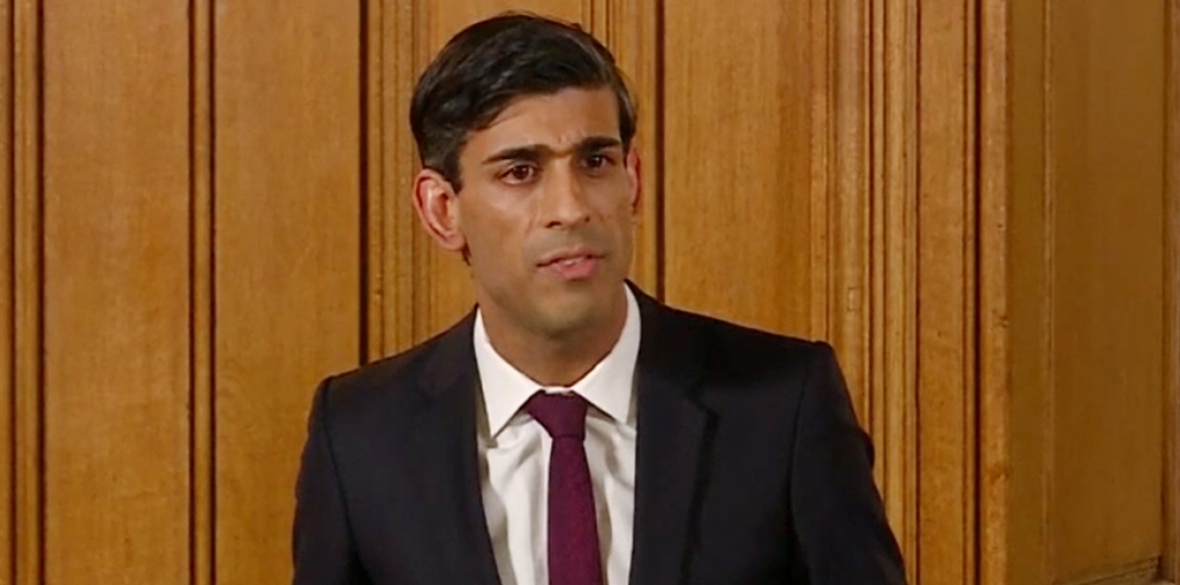This is the last article you can read this month
You can read more article this month
You can read more articles this month
Sorry your limit is up for this month
Reset on:
Please help support the Morning Star by subscribing here
CHANCELLOR Rishi Sunak announced cuts to the foreign aid budget today, prompting the resignation of a Foreign Office minister.
Baroness (Liz) Sugg, whose brief included sustainable development, said pledges to maintain overseas aid should be kept in the “tough times as well as the good.”
She resigned in protest against Mr Sunak’s announcement that aid will be cut to 0.5 per cent of gross national income in 2021 — breaking promises made in the Conservative manifesto that it would not be reduced.
Her resignation comes amid a growing Tory backlash to the plans, as former international development secretary Andrew Mitchell warned that cutting the budget risks causing 100,000 otherwise preventable deaths.
Mr Sunak said that the government’s “intention” is to return it to 0.7 per cent when the fiscal situation allows.
In his spending review, he also announced:
* Public services funding to tackle coronavirus totalling £55 billion next year. This will include an initial £18bn on testing, PPE, and vaccines, over £3bn to local councils, £3bn for the NHS and over £2bn to keep transport arteries open and subsidising rail networks. But public-sector workers will have their pay frozen and rail subsidies will line the pockets of private contractors.
* Nearly £3bn for a Restart Programme to help more than a million long-term unemployed people find work. But this only applies to those who have been unemployed for more than 12 months — not the thousands more who have lost jobs during the pandemic.
* £2.6bn to support the devolved administrations in Scotland, Wales and Northern Ireland. Finance leaders from each nation made an unprecedented linked statement last month to slam Sunak’s Autumn Budget “chaos.”
* A pay rise for more than a million nurses, doctors and others working in the NHS — but not for millions of other key public-sector workers under the Tory “divide-and-rule” strategy.
* A pay rise of at least £250 for 2.1 million public-sector workers who earn below £24,000 — described as “insulting” and a “sop” by Unite’s Gail Cartmail.
* An increase of the so-called national living wage by 2.2 per cent to £8.91 an hour and extending this rate to those aged 23 and over — far below the promised amount and still maintaining unfair lower wage rates for under-23s.
* Total departmental spending will be £540bn in 2021. Over this year and next day-to-day departmental spending will rise, in real terms, by 3.8 per cent — the fastest rate for 15 years, in which time the Tories’ austerity regime has slashed budgets while still allowing Matt Hancock to spend £50,000 from the public purse on takeaways for staff over just two months. In cash terms, day-to-day departmental budgets will increase next year by £15bn.
* Next year, the core health budget will grow by £6.6bn, to include 50,000 more nurses and 50 million more GP appointments. Unions have repeatedly complained of a staffing crisis in nursing, with the RCN noting 43,000 vacancies in England around this time last year.
* Increasing NHS capital investment by £2.3bn for new equipment, including the building of 40 new hospitals and upgrading 70 more. Previous promises have actually equated to just six hospitals, and not all of them new. Hospitals such as the new Liverpool Royal are lying vacant due to privateer failures.
* Councils to have extra flexibility for Council Tax and Adult Social Care precept to fund social care, and an extra billion-pound social care grant provided this year will be maintained into next year
* The schools budget will be increased next year by £2.2bn, and pupils will see a year-on-year funding increase of at least 2 per cent. School Cuts Coalition analysis last year showed that £5.4bn had been cut from school budgets in England since 2015.
* Funding to rebuild 500 schools over the next decade, and £1.5bn to rebuild colleges – this sum was last announced in June and was exposed by TES as covering for a real-terms cut.
* £291m to pay for more young people to go into further education
* More than £1bn extra funding for the criminal justice system
* “Record” investment plans in infrastructure totalling £100bn — this was first announced in 2019, to scepticism from economists.
* A new £7.1bn National Home Building Fund
* Almost £15bn of funding for scientific research and development.
* A new “Levelling Up Fund” worth £4bn — which was immediately criticised as yet another disappointing centralised spending package by northern politicians — alongside a new UK infrastructure bank headquartered in the north of England










